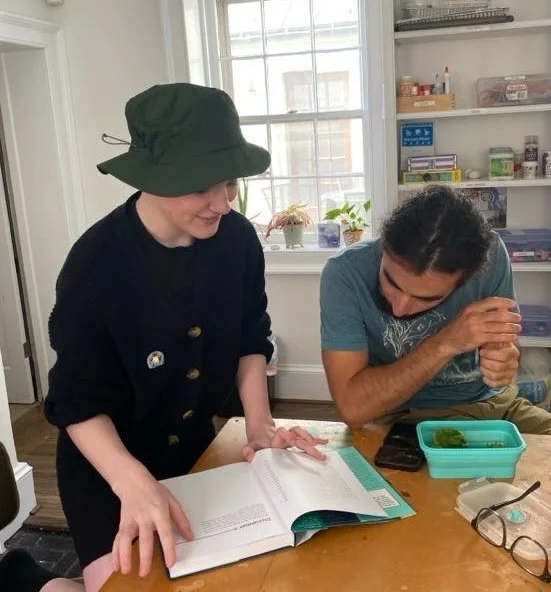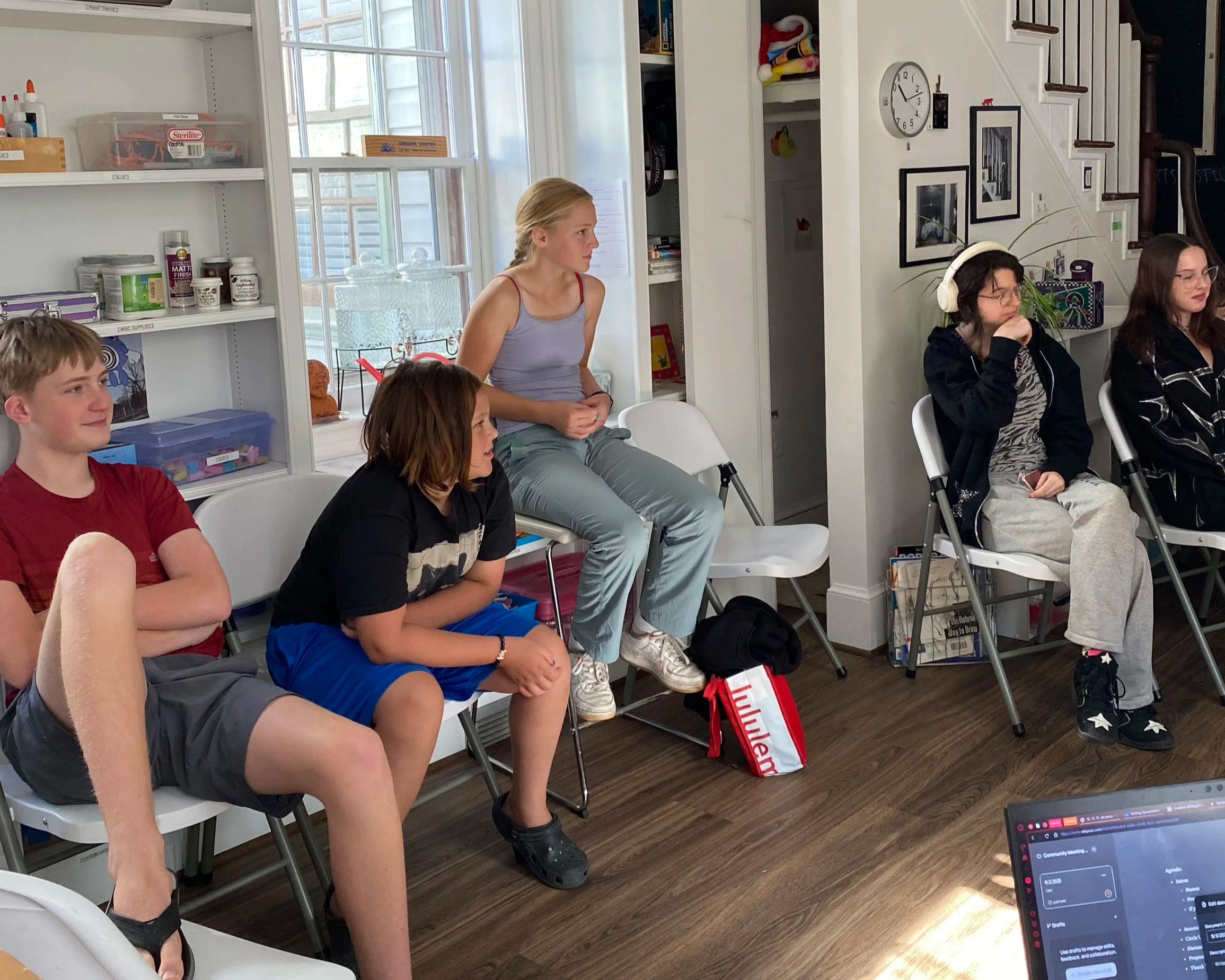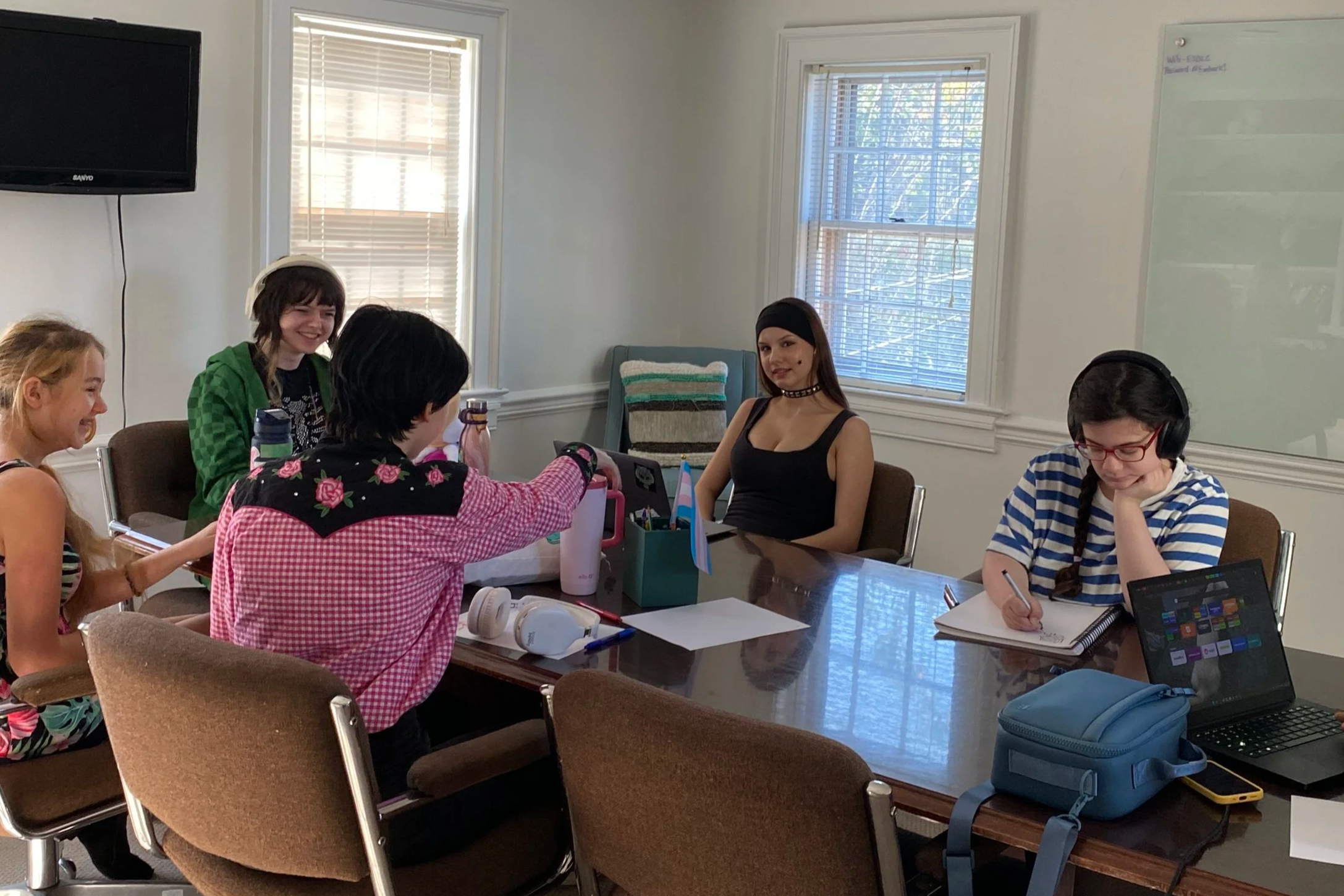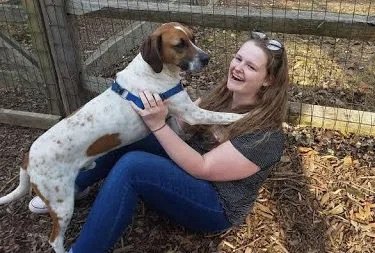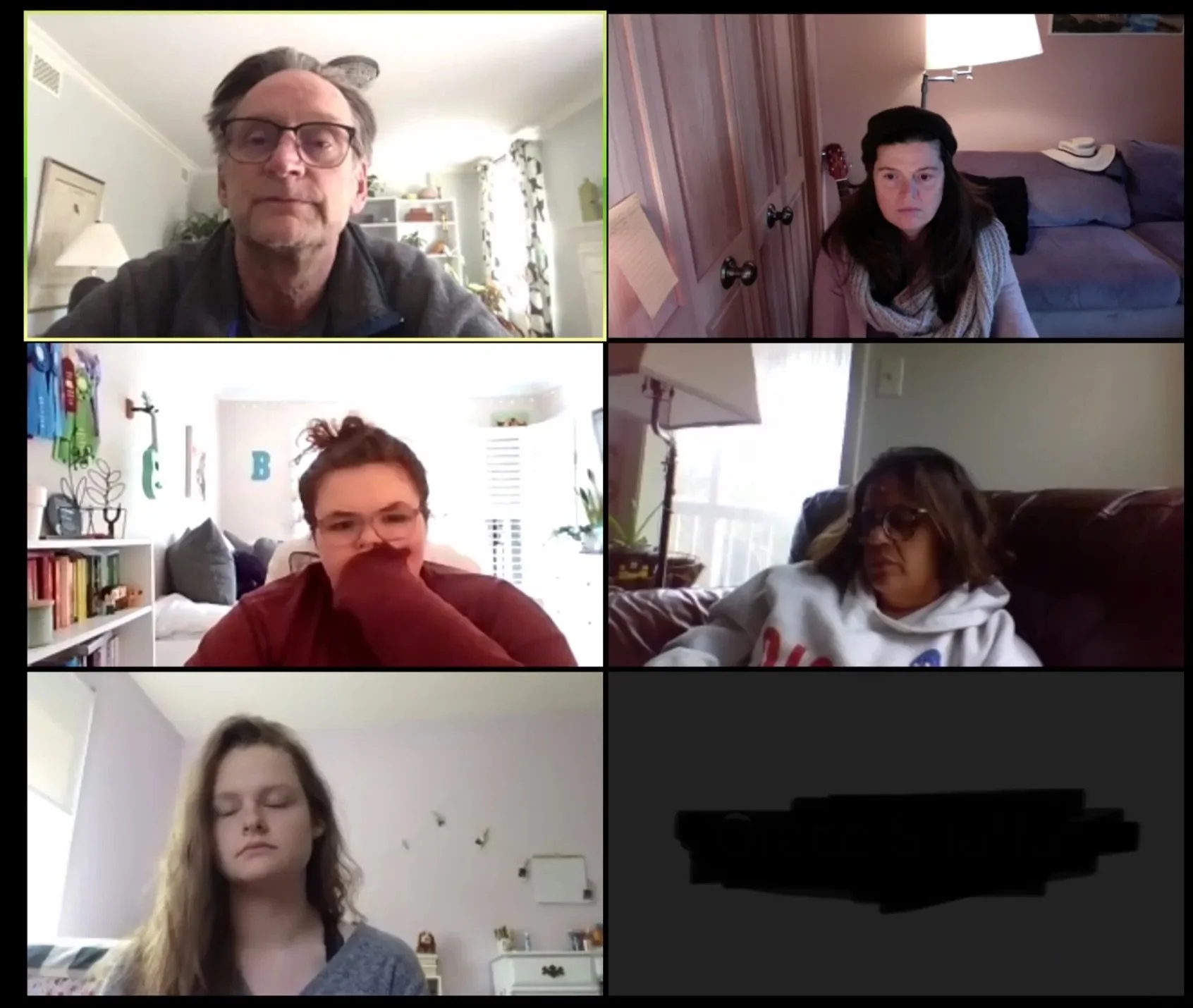
Journeys in Self-Directed Education
The Adults Young People Need: What True Mentoring Looks Like
A fresh look at how adults can support young people without controlling them—modeling curiosity, vulnerability, and genuine partnership so kids can build confidence, autonomy, and emotional resilience.
Rethinking Math: Why Kids Learn What They Need, When They Need It
A look at how kids naturally learn math through real-life experiences—like shopping, cooking, gaming, and exploring the world—without needing forced instruction.
Democratic Education: Real-Life Learning for a Changing World
Conventional schools still train students for a world that no longer exists. Employers today prize creativity, collaboration, and critical thinking — yet school continues to reward obedience and compliance. Democratic education bridges that gap by preparing young people to live meaningful lives now while developing the skills our changing world truly needs: adaptability, empathy, self-direction, and shared responsibility.
Beyond Classes: What Students Really Learn at Embark Center for Self-Directed Education
At Embark Center, learning isn’t defined by classes—it’s defined by growth. While some students take classes and others never do, all are developing the same critical skills: self-direction, collaboration, confidence, and adaptability. Through real-world projects, community decision-making, and authentic responsibility, they learn how to manage their time, communicate effectively, solve problems, and trust themselves. At Embark Center, classes are simply tools in the toolbox—the real work is learning how to build a meaningful life.
When Freedom Meets Difference: Helping Kids Navigate “It’s Not Fair!” Moments
When families join Embark Center for Self-Directed Education, they expect freedom — but they may not expect the emotional work that comes with it. Here’s how encountering different family rules helps kids grow in empathy, resilience, and self-awareness.
Reimagining School Choice Beyond Politics
Families across the political spectrum are rethinking education. For some, it’s about giving their children the chance to thrive; for others, it’s about survival in environments that no longer feel safe or responsive. Yet the phrase school choice itself has become a political dog whistle—dividing the very people who could be working together. If we can move beyond partisanship, we can begin to build a broad coalition committed to freedom, accountability, and equity for every child.
What If My Child Plays Video Games All Day?
Parents often worry: “What if my child just plays video games all day?” At Embark Center, we hear this all the time. This post explores why video games aren’t the enemy, what kids are really gaining, and how to reframe the “worst-case scenario” into something far less scary. Most of all, it’s about trust—trusting your child’s curiosity, their growth, and their unique path.
The Unexpected Grief of Letting Go of School
Leaving school can bring unexpected grief. Parents and kids often find themselves mourning more than an institution — they’re letting go of schoolishness, the belief that grades define worth and that belonging comes from doing things “the right way.” This reflection explores the quiet ache of stepping outside the tribe of school, and how families move through loss toward new kinds of connection and growth.
The School-Age Paradox: When Kids Need Autonomy Most
We trust toddlers and adults to learn through curiosity and self-direction — so why not school-age kids? This post explores the school-age paradox, showing how free play, autonomy, and self-directed learning for kids prepare them not just for college and work, but for life itself. Discover why rigid curriculum is a poor predictor of the future — and why trusting children’s natural drive to learn matters more than ever.
Deschooling: A Parent’s Guide
When families first join Embark Center, the hardest shift is often letting go of 'doing school.' Deschooling gives kids and parents the space to rebuild trust in curiosity, move beyond measurement, and embrace self-directed learning.
"Are You the Number One Horse Hater" and Other Interview Questions for New Staff Members
Embark teens help hire staff through a student-led Hiring Circle—reading applications, interviewing, giving tours, and deciding as a community. Michael reflects on progressive ed vs. self-directed education and what it means to trust young people with real responsibility.
“Is this a dream?”
One family shares how their 11-year-old regained joy, independence, and even started writing again after joining Embark. With gentle supports and growing separation confidence, mom describes learning to trust the self-directed process.
Learning and Practicing Non-Violent Communication at Embark
How Embark uses Nonviolent Communication—observations, feelings, needs, and requests—to resolve conflict with curiosity and compassion, building trust and shared solutions. Includes a sample NVC script and resource links.
Saving My Son
A mother describes her teen’s journey with ADHD and autism—from overwhelm in school to ownership, therapy support, and community at Embark—growing into a confident, kind member of the center.
Corona Gap Year
During COVID, a family makes the case for a “gap year” of healing and growth—offering practical paths like volunteering, apprenticeships, certification, community projects, and deep dives—plus reassurance about returning to school if desired.
New to Self-Directed Education?
Start here: a curated list of self-directed education resources—videos, books, articles, podcasts, and organizations—to help families understand and begin.
Virtual Embark: Self-Directed Learning during a Global Pandemic
How Embark kept classes, mentoring, field trips, and community alive online—from D&D and philosophy to speaker series and network classes—while keeping member choice central.
Welcome to the Wild Wonderful World of Homeschooling!
Practical, compassionate tips for sudden homeschoolers—honor free play, set gentle boundaries, connect through family projects, and let boredom spark creativity.
Self-directed Education; It’s Not Just for Them
How self-directed education grows adults, too—Kara shares creating the Embark Cultural Outreach Program with a teen, turning shared passion for travel into real-world learning.
Embark Teen/Parent Panel Discussion
What’s it really like to choose self-directed education? Teens and parents share honest stories about independence, community, and family life at Embark. Includes video.

